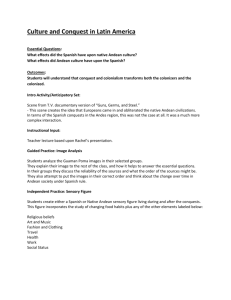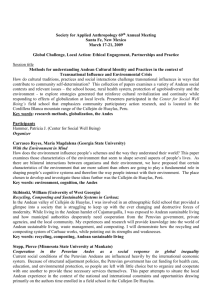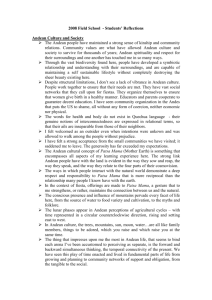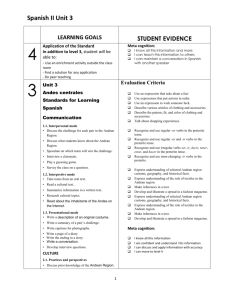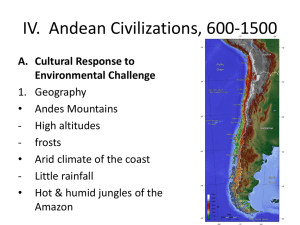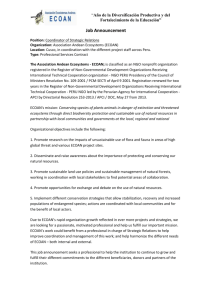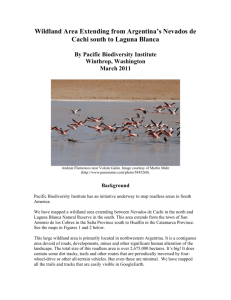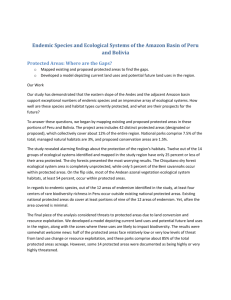DECLARACION CONJUNTA SOBRE EL ATPA A SER
advertisement
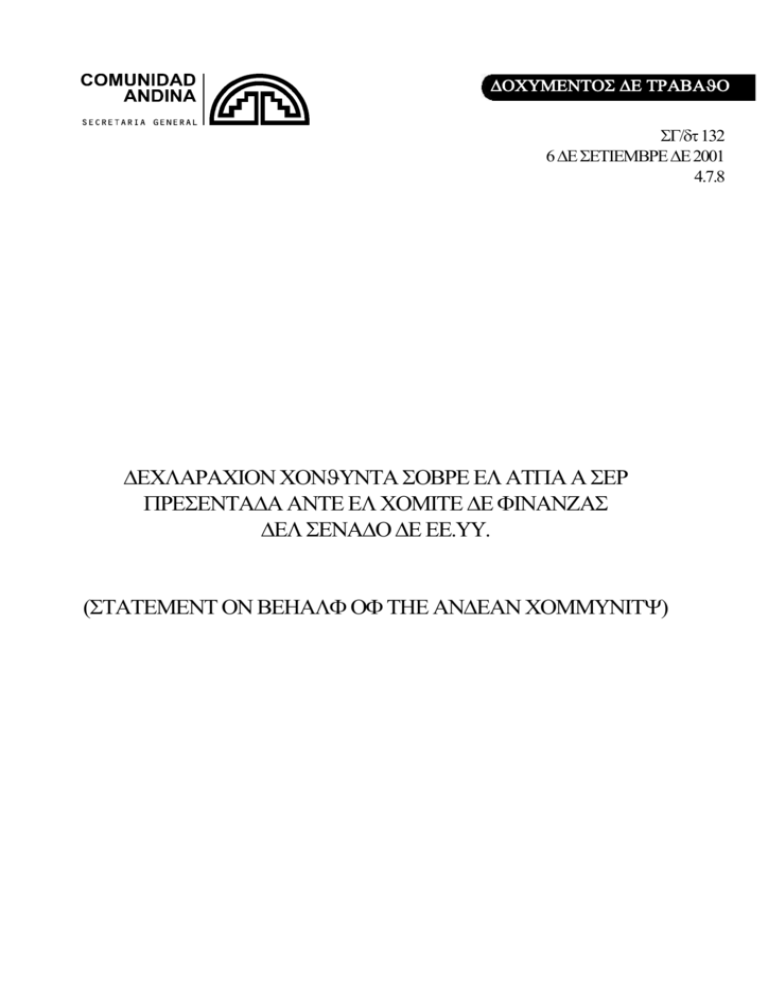
Statement on behalf of the Andean Community More than ten years ago the Presidents of various Andean countries and the United States met in Cartagena, Colombia to open a new era in the fight against illicit drugs. On that memorable occasion, the Heads of State adopted a common strategy to attack the problem and, for the first time, they resolved to combat it through an integrated approach that would include the political support and cooperation of the United States together with the efforts of the Andean countries. We believe it is essential to return to the bases of that commitment and reassert the principles of our cooperation, taking into consideration the reduction in supply, demand and consumption, as well as promoting specific initiatives in the areas of alternative development, trade and investment. Nor must we lose sight of the fact that these elements are related and support and balance one another. One specific result of this joint action has been the Andean Trade Preferences Act. We recognize the benefits derived from this initiative, both for our countries and for the United States, and that, while ATPA has been in force, bilateral trade has doubled in both ways. Today, in view of the fact that the plague of drugs is still with us – despite the unremitting efforts of the Andean countries in their fight against drugs – we are convinced that it is imperative to broaden and deepen the cooperation on which we embarked more than ten years ago. In this we assign priority to a prompt renewal of the Andean Trade Preferences Act, to make it permanent until it converges with the tariff reduction program to be negotiated in the FTAA. Trade flows between beneficiary countries and the United States have increased considerably in both directions. According to the U.S. Department of Commerce, in 2000, bilateral trade was valued at more than $18 billion and the Andean Community was the 16th largest consumer of U.S. exports. In comparison, the value of U.S. exports to the Andean Community was 1.3 times as much as that which was exported to the Central American Common Market, nearly twice as large as exports to Eastern Europe and more than 3.5 times as high as those to Chile. In 1999, the level of U.S. foreign direct investment in the Andean Community totaled more than $14 billion, which represents a 73% increase from 1994. Bearing this in mind, we consider it necessary to increase the range of exports with high Andean value-added and with a strong impact on the generation of licit employment in order to substitute for unlawful activity related to drug production. We believe it is fundamental to generate employment in the chains of production that use regional inputs. Incorporating more regional value-added to export products will allow the creation of new jobs as an alternative to those linked to illicit activities related to drug trafficking. -2- The expansion of ATPA's coverage should not be subject to rules of origin related to inputs that restrict our textile and apparel products' access. In this regard, the new regime should take into account the region's productive structure, favoring the use of regional inputs. While we appreciate current legislative efforts with regards to ATPA's expansion, we reiterate the need that such initiatives reflect our region's particular productive structure. An ATPA renewal that incorporates Andean apparel, without restrictions on the use of regional inputs, will not have a negative impact on employment and production in the United States. Beneficiary countries' apparel exports (approximately 160 million SMEs) make up less than 1% (0.98%) of total U.S. apparel imports (approximately 16 billion SMEs). On the other hand, it would help an industry that has already been hurt by preferences granted to other regions. Thus expanding ATPA's coverage to apparel with Andean inputs would have a significant and positive economic and social impact – specifically on employment – and, as a result, on the war against illegal drugs. The extension of trade preferences to tuna in airtight containers would promote employment (mostly female) in the local industries, and help depressed areas in the beneficiary countries through higher value-added exports with a true potential and minimal impact on U.S. industry (Andean exports in 2000 to the U.S. amounted to less than US$ 12 million). Environmental issues are already thoroughly addressed in the Marine Mammal Protection Act, the International Dolphin Conservation Program and the IACTT. We therefore urge Congress to consider ATPA renovation and enhancement as soon as possible. It is of the utmost importance for the Andean countries that the new program is in place before ATPA's expiration in order to guarantee the continuity of our exports. With regards to Venezuela, we wish to restate our interest that it be included as a beneficiary, as this would help to strengthen the Andean integration process. We will only achieve the results expected of us in the fight against drugs if we have innovative instruments and support that is proportional to our countries’ efforts. *****

